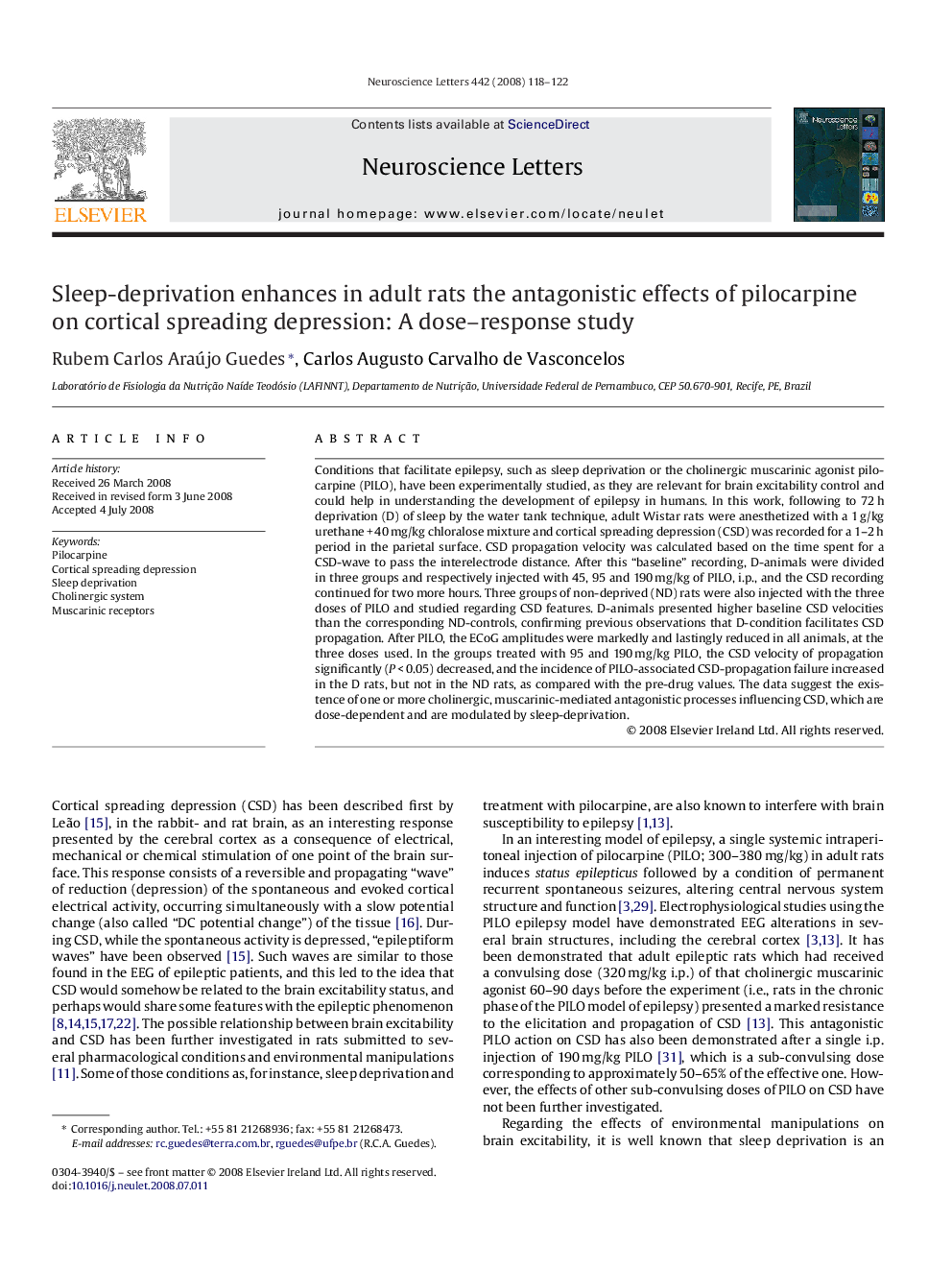| Article ID | Journal | Published Year | Pages | File Type |
|---|---|---|---|---|
| 6285760 | Neuroscience Letters | 2008 | 5 Pages |
Abstract
Conditions that facilitate epilepsy, such as sleep deprivation or the cholinergic muscarinic agonist pilocarpine (PILO), have been experimentally studied, as they are relevant for brain excitability control and could help in understanding the development of epilepsy in humans. In this work, following to 72 h deprivation (D) of sleep by the water tank technique, adult Wistar rats were anesthetized with a 1 g/kg urethane + 40 mg/kg chloralose mixture and cortical spreading depression (CSD) was recorded for a 1-2 h period in the parietal surface. CSD propagation velocity was calculated based on the time spent for a CSD-wave to pass the interelectrode distance. After this “baseline” recording, D-animals were divided in three groups and respectively injected with 45, 95 and 190 mg/kg of PILO, i.p., and the CSD recording continued for two more hours. Three groups of non-deprived (ND) rats were also injected with the three doses of PILO and studied regarding CSD features. D-animals presented higher baseline CSD velocities than the corresponding ND-controls, confirming previous observations that D-condition facilitates CSD propagation. After PILO, the ECoG amplitudes were markedly and lastingly reduced in all animals, at the three doses used. In the groups treated with 95 and 190 mg/kg PILO, the CSD velocity of propagation significantly (P < 0.05) decreased, and the incidence of PILO-associated CSD-propagation failure increased in the D rats, but not in the ND rats, as compared with the pre-drug values. The data suggest the existence of one or more cholinergic, muscarinic-mediated antagonistic processes influencing CSD, which are dose-dependent and are modulated by sleep-deprivation.
Keywords
Related Topics
Life Sciences
Neuroscience
Neuroscience (General)
Authors
Rubem Carlos Araújo Guedes, Carlos Augusto Carvalho de Vasconcelos,
